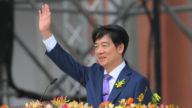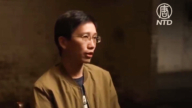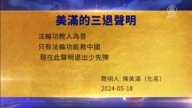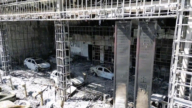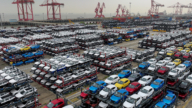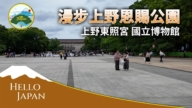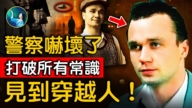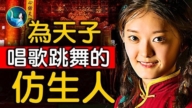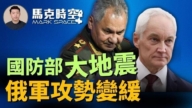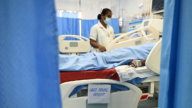【新唐人2012年12月28日讯】被称为世界最长距离的“京广高速铁路”试车成功:全线300公里的时速,从北京到广州仅需8小时,比原来最快列车快了12多个小时。但花费近4000亿的天价,让人想到腐败的加重﹔每年巨额的利息,使得运营面临数十年的亏损﹔高昂的票价也令普通百姓大呼“坐不起”。
京广高速铁路26号首次试车,从北京西站出发,中间经石家庄、郑州、武汉、长沙到达广州,经过8个小时完成了2千3百公里的行程。预计从北京到广州的高铁,将在中国新年期间正式开通。
根据公布的京广高铁票价表,北京到广州,最便宜的“二等座”票价为865元,最贵的“商务座”则高达2727元。时速超过200公里的“D字头列车”,北京到广州二等座票价为712元。
而北京到武汉的高铁二等座售价为530元,D字头则为381元。很多网友高呼“坐不起”。
北京师范大学MBA导师 段绍译:“高铁,它是用时间换金钱,坐车老百姓的时间没有那么值钱的话,高铁价格定低了,它就是亏损的,价格定高了就没人坐。目前来讲,高铁主要是上流社会的事情。”
北京王姓网友认为,高铁根本不是为普通老百姓准备的,再多高铁也不能改变普通列车越来越挤的现实。
北京网民 王先生:“上访的绝对是不坐高铁的,沿途的那些一般的探亲访友的,他也是能不坐就不坐。什么人愿意坐呢?肯定就是公务员、大公司(职工),这些人愿意坐。这些人的费用全部是报销的,公务员花的是纳税人的钱。”
“中国社科院经济研究所”研究员徐逢贤指出,如果由于价格过高,使高铁上座率达不到90%,就说明高铁运输状态处于不良状态。
事实上,“京津高速城际铁路”运行两周年的平均上座率为70%,而2012年的中国新年,“京沪高铁列车”的上座率也普遍在7成左右。
但“京广高铁”的另一些资料同样被外界所关注,如:总耗资近4000亿,其中90%资金是贷款,每年需支出几十亿的贷款利息等。
“北京交通大学经济管理学院”教授赵坚认为,京广高速铁路建设成本高,运行成本高,票价没办法覆盖成本,可能会严重亏损达十年甚至二十年。赵坚透露,目前所有的高铁都处于亏损状态,京津高铁运营每年净亏损7亿元。
北京师范大学MBA导师兼经济专栏作家的段绍译还表示,北京到广州的高铁不是市场行为,根本没有考虑投入和产出,因为国有企业是花别人的钱、办别人的事,效率肯定是要打折扣。
《湖南日报》报业集团旗下的《华声在线》揭露:京广高铁上所安装的座椅,一把价值23万。今年2月还爆出:所有高铁列车采购的自动洗面器,一个价值7.2万元,一个洗面台2.6万,一个感应水阀1.28万,一个卫生间纸巾盒1125元。这些设施都由铁路部门的指定供应商提供。
其实,前铁道部长刘志军、和原总工程师周曙光案件,就暴露了铁道部的腐败窝案,仅张曙光在海外存款高达28亿美元,涉案人员包括15名副局级高官。
广州网友刘远东:“它的当官的官僚体制,基本上都是从中央买官卖官,因为假设你作为一个领导人的话,你要提拔一个人肯定就有好处了。现在所谓的朋友、什么亲戚啊,这些所谓社会关系,很多时候并不可靠,那最可靠的就是金钱啦。”
《法新社》评论指出,京广高铁是中国大陆快速建设高速铁路的一个新里程碑,但是中国高速铁路的发展也曾经传出贪污和安全丑闻,如2011年7月温州高铁追撞事故就造成40人死亡,至今让人们记忆犹新。
采访/朱智善 编辑/宋风 后制/萧宇
China’s 400-Billion-yuan High-Speed Rail Line Opens
The Jingguang high speed rail line from Beijing
to Guangzhou recently made its first trial run.
It is viewed as the world’s longest high-speed railway line,
with an 8-hour journey at a speed of 300 km per hour.
This provides a saving over 12 hours
in comparison to alternatives.
However, it has reportedly cost nearly 400 Billion yuan,
arousing the public’s suspicion of intense corruption.
Huge annual loan interest expenses will make rail
service a continuous red-ink for the next decade.
Expensive fares have made ordinary
people cry out, “we can’t afford it.”
On December 26, Jingguang high-
speed rail line held its first trial run.
It traveled over 2,300 kms from
Beijing to Guangzhou in eight hours.
The route is expected to begin operating
during the 2013 Chinese New Year.
The table for prices of tickets shows that the second
class is the cheapest available at 865 yuan.
Business class is most expensive at 2,727 yuan.
For Jingguang high-speed trains identified
with “D”, its second-class ticket costs 712 yuan.
A second-class ticket costs 530 yuan
for the Beijing-Wuhan high-speed rail.
For the “D” -train on the same route, it costs 381 yuan.
Many citizens complained that they cannot afford it.
Duan Shaoyi, tutor for MBA students,
Beijing Normal University:
“People spend money to take
the high-speed train to save time.
If the fares are too cheap, it will make a loss;
but too costly will scare ordinary passengers.
So far, high-speed trains
mainly serve the rich in China.”
Mr. Wang, Beijing netizen, says that high-speed
rail trains are not made for ordinary people.
No amount of high-speed trains could solve the problem.
In reality, regular trains are getting
increasingly crowded, he says.
Mr. Wang: “Petitioners traveling to Beijing
will definitely not take high-speed trains.
Nor will ordinary people when visiting relatives and
friends, so who is willing to take high-speed trains?
Certainly those are civil servants,
and employees of large firms.
Their traveling expenses are all reimbursed.
Civil servants actually spend taxpayers’ money.”
Xu Fengxian, researcher at the Chinese
Academy of Social Sciences, commented.
If high-speed train fares are so expensive that they
achieve less than 90% for seat occupancy rate,
that shows high-speed rail transport is poor, he says.
In the past two years, the Beijing-Tianjin high-speed
rail has given an average daily attendance of 70%.
During the 2012 Chinese New Year, the Beijing-Shanghai
high-speed rail train generally saw daily attendance of 70%.
Data related to the Jingguang high-speed
rail line has become public concern.
This includes the total cost of nearly 400 Billion yuan.
90% of capital came from loans, and
Billions of yuan in annual loan interest.
Zhao Jian, professor at the Economics & Management
School, Beijing Jiaotong University, disclosed information.
Due to high costs in construction and operation, fares for
Jingguang high-speed rail trains cannot cover the costs.
Worse still, a huge loss may
last for a decade or even longer.
Zhao Jian revealed that currently, all high-speed
rail trains in China have been in the red.
Each year, the Beijing-Tianjin high-speed rail
sees a net loss of 700 Million yuan, says Zhao.
Duan Shaoyi remarks that the Jingguang
high-speed rail was not a market-based decision.
There was no consideration of inputs and outputs.
Duan interpreted that China’s state-owned enterprises
never spend their own money and offer benefits to others.
Therefore, the efficiency will certainly be lower.
“voc.com.cn” reported that each seat in a Jingguang
high-speed rail train costs 230,000 yuan.
During this February, media exposed sky-high
toilet facilities on China’s high-speed rail trains.
An automated hand-wash basin costs over 70,000 yuan.
A colorful marble washstand costs 26,000 yuan.
A sensor-activated faucet costs over 12,000 yuan,
and a tissue box costs over 1,100 yuan.
All items were purchased through designated
suppliers by the Railways authorities.
Collective corruption has been unveiled to the public when
the cases of Liu Zhijun and Zhang Shuguang were exposed.
Liu Zhijun was the former CCP Railways Minister.
Zhang Shuguang was the Railways
Ministry’s former deputy chief engineer.
Zhang himself owned US$ 2.8 Billion
of overseas bank deposits.
The case implicated 15 deputy level CCP officials.
Liu Yuandong, Guangzhou netizen: “The regime’s
officialdom is filled with buying and selling official positions.
A CCP cadre will definitely reap
benefits if promoting someone.
Nowadays, the so-called social relations like friends
or relatives are all unreliable, most of the time.
The most reliable is just money.”
Agence France-Presse reviewed that the Jingguang
high-speed rail is a new milestone in China’s rapid
construction in this field, but there have been repeated
reports of corruption scandals and train accidents.
AFP cites the example of Wenzhou’s bullet train
crash in July 2011, which caused 40 deaths.


